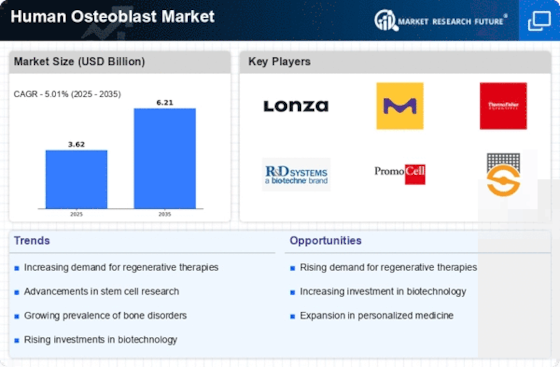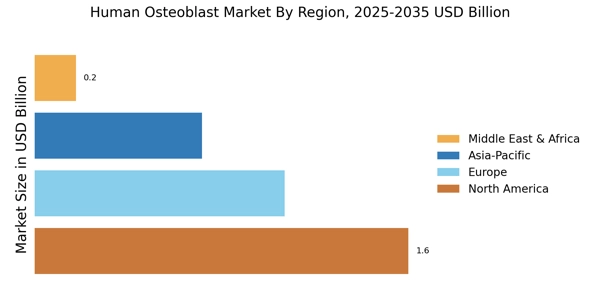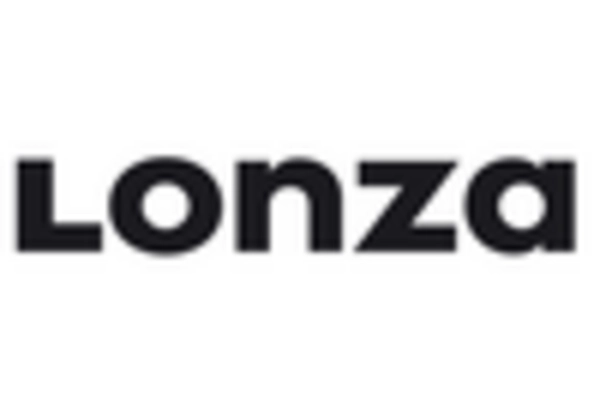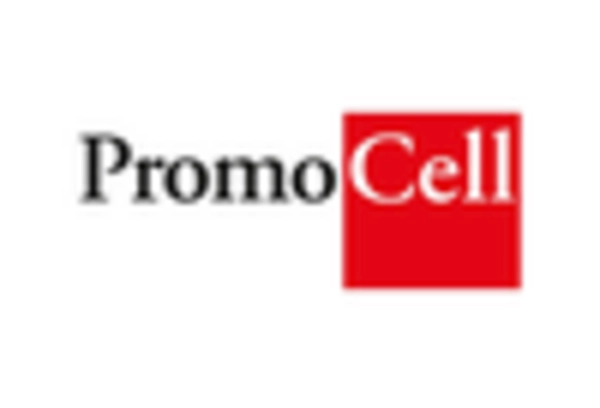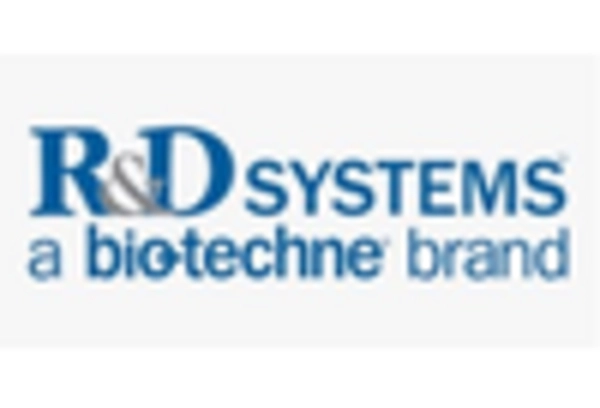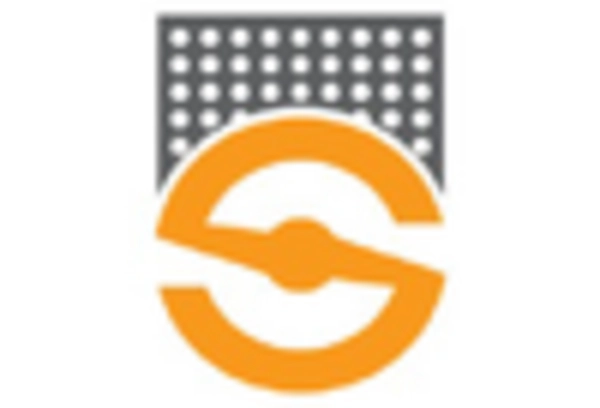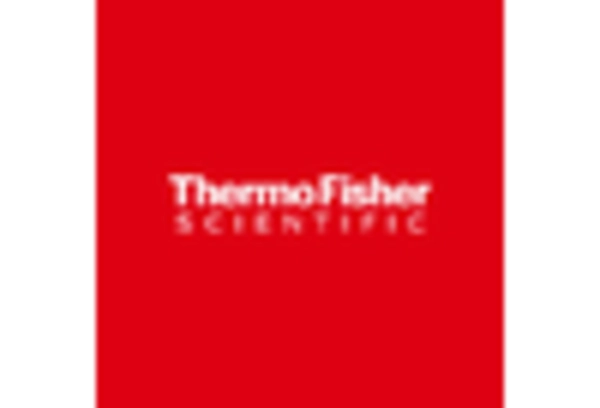Advancements in Stem Cell Research
The Human Osteoblast Market is significantly influenced by advancements in stem cell research. The ability to derive osteoblasts from stem cells has opened new avenues for regenerative medicine, particularly in treating bone-related ailments. Research indicates that stem cell-derived osteoblasts can effectively promote bone healing and regeneration, which is crucial for patients with severe bone injuries or degenerative diseases. As the scientific community continues to explore the potential of stem cells, the demand for osteoblasts is expected to rise. This trend is further supported by increased funding for stem cell research initiatives, which aim to develop innovative therapies that utilize osteoblasts for enhanced bone repair and regeneration.
Rising Incidence of Bone Disorders
The Human Osteoblast Market is experiencing growth due to the increasing prevalence of bone disorders such as osteoporosis and fractures. As populations age, the incidence of these conditions rises, leading to a heightened demand for osteoblasts in therapeutic applications. According to recent data, osteoporosis affects millions worldwide, with a significant portion of the elderly population at risk. This trend necessitates innovative treatments that leverage osteoblasts for bone regeneration and repair. Consequently, pharmaceutical companies and research institutions are investing in the development of osteoblast-based therapies, which is likely to drive market expansion. The focus on improving patient outcomes through regenerative medicine further underscores the importance of osteoblasts in addressing these health challenges.
Growing Interest in Personalized Medicine
The Human Osteoblast Market is witnessing a shift towards personalized medicine, which emphasizes tailored treatment approaches based on individual patient needs. This trend is particularly relevant in the context of osteoblast therapies, where the ability to customize treatments can lead to improved efficacy and patient satisfaction. As healthcare providers increasingly recognize the benefits of personalized approaches, the demand for osteoblasts that can be specifically engineered for individual patients is likely to grow. Market data suggests that personalized medicine is projected to expand significantly, with a focus on developing osteoblast-based therapies that cater to unique patient profiles. This evolution in treatment paradigms may drive innovation and investment in the Human Osteoblast Market.
Increased Funding for Bone Health Research
The Human Osteoblast Market is benefiting from increased funding directed towards bone health research. Governments and private organizations are recognizing the critical need for innovative solutions to combat bone-related diseases, leading to substantial investments in research initiatives. This influx of funding is facilitating the exploration of osteoblasts in various therapeutic contexts, including tissue engineering and regenerative medicine. Recent reports indicate that funding for bone health research has seen a marked increase, which is likely to accelerate the development of osteoblast-based therapies. As researchers continue to uncover the potential of osteoblasts in promoting bone health, the market is expected to expand, driven by the demand for effective treatments.
Emerging Applications in Tissue Engineering
The Human Osteoblast Market is poised for growth due to emerging applications in tissue engineering. The integration of osteoblasts into tissue engineering strategies is gaining traction, as these cells play a pivotal role in bone formation and regeneration. Recent advancements in biomaterials and 3D printing technologies are enabling the creation of scaffolds that support osteoblast function, thereby enhancing bone repair processes. Market analysis suggests that the tissue engineering sector is expanding rapidly, with a focus on developing osteoblast-based solutions for various orthopedic applications. This trend indicates a promising future for the Human Osteoblast Market, as the demand for innovative tissue engineering approaches continues to rise.


